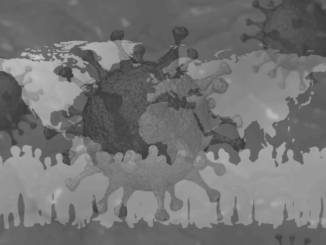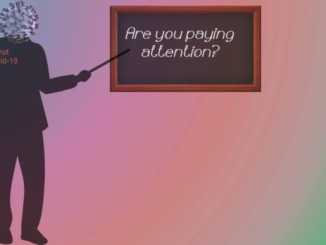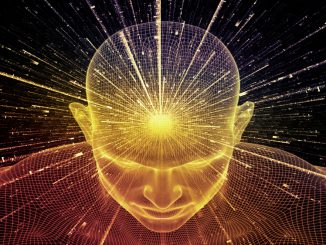
Even though the particular idea of “what is happiness” is different for everybody, one can hardly deny the fact that no matter what we do or choose, the underlying motive (conscious or subconscious) is to achieve more and ever-lasting happiness. Driven by this motive we get into our life situations and interact with other participants who in turn are driven by their own specific search for happiness. Finally, the collective decisions of a society or a nation in one way or another also reflect someone’s idea of happiness (even if it is a dictator who seeks to increase his personal dominion by commanding a war against another country).
The point is not to just be philosophical about it or entertain a mental exercise about happiness. We should be pragmatic. For it seems that more and more, individually and collectively we are doing worse and worse in this common quest that we all have. Our personal desire for happiness seems to be contradicting the desire of others. As if those are mutually exclusive and competing goals. We are in constant effort to fight our way on the road of happiness but somehow, we seem to be failing. Even those who are into positions of wealth, fame and power and can in one way or another enforce their ways upon others still do not seem to be genuinely happy.
Why is that? Why does happiness seem to be so unreachable?
It seems that our failure is not due to circumstances or people. There seems to be something fundamentally erroneous in our underlying ideas about happiness that defeats our efforts from the very start.
What is (not) happiness?
What will be outlined in the following paragraphs is not necessarily something new, something you shall hear of for the first time. However, if we start with some fundamental and. to a large degree, verifiable truths and let them properly sink in, we might come with a clue where we do a major mistake.
• Happiness is not a thing or a particular quality of any object, circumstance or person. It is an inner, psychological or mental state that we experience.
Even though most people would agree to that distinction, the fact is that somehow in our lives we seem to look for happiness in acquiring objects, attracting people and achieving circumstances as if those possess a permanent quality of happiness which can stay with us. All those external things might be stimuli to experience state of happiness but they themselves do not possess such a quality.
Why is this distinction important? As far as it is the attitude of our mind towards the external objects that is experienced as happiness and as long as the mind is constantly shifting between different moods, thoughts, fantasies etc., there is no way to be permanently happy based on external phenomena because there is no way to fixate the mind with the same attitude forever on any particular object.
No matter how much you like the taste of ice-cream for example, there is no way to make sure you will always have it available in your fridge or even if you do, your hunger for it will inevitably be exhausted. What you are left with is to go search for next object of happiness.
• Everything in our reality including ourselves is dynamically and ever changing. Our physical bodies change, our personalities change, our interests change, the things we like and dislike change and everything that we get in touch with also changes.
• If both we, who perceive of an external object and the object itself change constantly, even if there might be a point of perfect match with each other, a point of perfectly balanced interaction, there is no way that we stay at that point forever and have continuous state of happiness. Whatever we get hold of, we cannot keep.
A healthier approach
So, which is the “permanent” component of our life? What is the aspect that is really always with us throughout our existence? The only constant variable seems to be change itself. If we really understand and accept that as a truth, we can give up our futile pursuit of “something” (no matter what it is) with the false belief that it would allow us to be happy and then keep us that way forever. The only solid basis for happiness is laid out through the cultivation of an inner attitude of accepting, appreciating and enjoying the ever ongoing change in and around us.
Now, the theory is one thing, the practice something completely different and not necessarily easy. There are ways, there are paths and there are techniques to it. But even by only pondering on the theory, we might relax little by little and let go the energy of struggle for external achievements.
Loosening our individual tensions is a stepping stone to reducing the tension in our interaction with the rest of the world. If one is a believer in the idea of happiness through external circumstances and the possibility to keep them and be “happy ever after”, his life becomes a game of never-ending pursuit and disappointments.
If on the other hand one is disillusioned, there is not so much drama. You would not be fighting with your colleague at work over the promotion of one or the other – simply because you will know for sure that fundamentally such an achievement will come and go as anything else and will not fundamentally resolve anything for you.
Not only for our own sake…
The point is that whatever concerns we might have in our immediate life situation, about our personal relationships with others or even about events of global nature, the first step we should take is to build a healthy inner world and attitude. Without at least some level of inner peace and relaxation as individuals we can only bring that lacking to the external world and create further confusion and tension. So far, we have been very good in doing so.
Our inner well-being is not just a “personal matter” for it does bear influences. Therefore, by having it built on realistic and solid foundation, we are actually caring not only for ourselves but also for the rest of the world. As one great spiritual teacher says in his lectures “To reach any number, you always start with number one”. Each individual is the number one, the small but indispensable contribution to the big picture. By perfecting the small, we shall perfect the picture.














